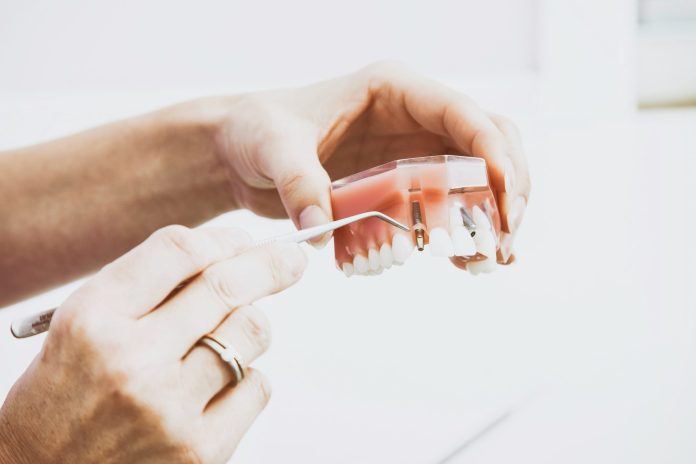Losing teeth can be a challenging experience, affecting your confidence, ability to eat comfortably, and overall quality of life. When it comes to replacing missing teeth, residents of Lytham are often faced with a choice between two common options: dentures and dental implants. While dentures have been a traditional solution for decades, dental implants offer a range of significant advantages that make them a superior choice for many individuals seeking a long-term, natural-feeling solution.
At ARC Dental Surgery, conveniently located near Lytham, we understand the importance of making informed decisions about your oral health. In this comprehensive guide, we’ll delve into the numerous benefits of dental implants over dentures, helping you understand why dental implants have become the gold standard for tooth replacement in modern dentistry.
Understanding Dentures and Dental Implants
Before we explore the advantages of dental implants, let’s briefly define each option:
- Dentures: Dentures are removable appliances that replace missing teeth. They can be full dentures, replacing all teeth in an arch, or partial dentures, replacing a few missing teeth while utilising remaining natural teeth for support. Dentures are typically made of acrylic or a combination of acrylic and metal.
- Dental Implants: Dental implants are artificial tooth roots, typically made of titanium, that are surgically placed into the jawbone. Once the implant integrates with the bone (osseointegration), a replacement tooth (crown) is attached to the implant, providing a stable and permanent solution.
Key Benefits of Dental Implants Over Dentures
Superior Stability and Retention:
One of the most significant advantages of dental implants is their superior stability and retention compared to dentures. Dental implants are anchored directly into the jawbone, providing a solid foundation for the replacement tooth. This stability allows you to eat, speak, and smile with confidence, without worrying about your teeth slipping or shifting.
Dentures, on the other hand, rely on suction and adhesives to stay in place. This can lead to slippage, especially when eating hard or sticky foods. The lack of stability can also affect speech and cause discomfort.
Preservation of Jawbone Health:
When teeth are lost, the jawbone in that area begins to deteriorate over time, a process known as bone resorption. This can lead to changes in facial structure, making you look older and potentially affecting the fit of dentures.
Dental implants, because they fuse with the jawbone, stimulate bone growth and prevent bone resorption. This helps maintain your natural facial structure and supports the long-term health of your jawbone.
Enhanced Chewing Ability:
Dental implants restore chewing ability to a level that is closer to natural teeth. Because they are securely anchored in the jawbone, you can eat a wider variety of foods without discomfort or difficulty.
Dentures, however, can reduce chewing efficiency due to their instability and the pressure they exert on the gums. This often leads to dietary limitations and can affect nutrient intake.
Improved Speech:
Ill-fitting dentures can sometimes interfere with speech, causing slurring or mumbling. Dental implants, because they are stable and don’t move around, allow you to speak clearly and confidently.
Natural Look and Feel:
Dental implants are designed to look, feel, and function like natural teeth. The replacement tooth (crown) is custom-made to match the shape, size, and colour of your existing teeth, creating a seamless and natural-looking smile.
Dentures, while they can improve appearance, may not always look completely natural. They can also feel bulky or uncomfortable, especially in the initial stages of wearing them.
Long-Term Solution:
Dental implants are considered a long-term solution for tooth replacement. With proper care and maintenance, they can last a lifetime. Dentures, on the other hand, typically need to be replaced or relined every few years due to wear and tear and changes in the jawbone.
No Need to Alter Adjacent Teeth:
Dental implants are stand-alone replacements that don’t require altering adjacent teeth. In contrast, traditional bridges, another tooth replacement option, require the grinding down of healthy adjacent teeth to support the bridge.
Easy Maintenance:
Caring for dental implants is similar to caring for natural teeth. You simply need to brush, floss, and visit your dentist for regular check-ups and cleanings. Dentures require more specialised care, including daily removal for cleaning and soaking in a denture solution.
Addressing Potential Concerns
While dental implants offer numerous advantages, it’s important to address potential concerns:
- Cost: Dental implants are generally more expensive than dentures initially. However, considering their long-term benefits and durability, they can be a more cost-effective solution over time.
- Surgical Procedure: Dental implant placement involves a surgical procedure, which may require a longer healing period compared to getting dentures.
- Candidacy: Not everyone is a suitable candidate for dental implants. Factors such as bone density and overall health can affect candidacy.
The Dental Implant Process
The dental implant process typically involves the following steps:
- Consultation: A thorough examination and discussion of your treatment options.
- Treatment Planning: Developing a personalised treatment plan based on your needs.
- Implant Placement: Surgically placing the titanium implant into the jawbone.
- Osseointegration: Allowing the implant to fuse with the jawbone (typically a few months).
- Abutment Placement: Attaching a connector post (abutment) to the implant.
- Crown Placement: Attaching a custom-made replacement tooth (crown) to the abutment.
Conclusion
Dental implants offer a range of significant benefits over dentures, including superior stability, preservation of jawbone health, enhanced chewing ability, improved speech, a natural look and feel, and long-term durability. While dentures may be a more affordable option initially, dental implants provide a more comprehensive and long-lasting solution for tooth replacement.



 Bitcoin
Bitcoin  Ethereum
Ethereum  Tether
Tether  XRP
XRP  USDC
USDC  Solana
Solana  Cardano
Cardano  TRON
TRON  Lido Staked Ether
Lido Staked Ether  Toncoin
Toncoin  Avalanche
Avalanche